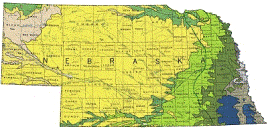United States Geological Survey

United States Geological Survey: Staff Publications
Document Type
Article
Date of this Version
2014
Citation
Developmental and Comparative Immunology 45 (2014) 133–140
Abstract
Anadromous Arctic charr (Salvelinus alpinus) undergo voluntary winter fasting for months in the Arctic. We tested the hypothesis that extended fasting will compromise the ability of this species to evoke an immune response. Charr were either fed or fasted for 85 days and challenged with lipopolysaccharide (LPS), and the molecular immune response in the liver and spleen assessed at 8 and 96 h post-injection. LPS increased IL-1β, IL-8, and serum amyloid protein A (SAA) mRNA levels in both groups, but the liver IL- 1β and IL-8, and spleen IL-8 responses were reduced in the fasted group. Fasting upregulated SOCS-1 and SOCS-2 mRNA abundance, while LPS stimulated SOCS-3 mRNA abundance and this response was higher in the fasted liver. Collectively, extended fasting and emaciation does not curtail the capacity of charr to evoke an immune response, whereas upregulation of SOCS may be a key adaptation to conserve energy by restricting the inflammatory response.


Comments
This article is a U.S. government work, and is not subject to copyright in the United States.